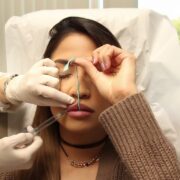This article will discuss the symptoms, causes, treatments, and prevention of autoimmune diseases. The first part of this article focuses on the symptoms of these conditions. The second part focuses on the treatments for these conditions. This will include the autoimmune protocol diet and immune system booster. These diets are designed to promote the immune system’s health and may include other healthy lifestyle choices. Often, an autoimmune protocol diet is accompanied by a vitamin supplement and immune system booster.
Symptoms
While autoimmune diseases are a cause for concern, it does not mean that you cannot live a healthy life. Understanding your condition and addressing the main causes can alleviate the symptoms and live a healthy and active life. These diseases can cause significant damage to almost every part of the body, including the kidneys, lungs, intestines, skin, and more. To help you cope with the symptoms of your disease, here are a few simple lifestyles and diet changes that may help you.
The symptoms of autoimmune disease are not always immediately apparent. In some cases, symptoms may not be immediately apparent, but they may indicate another autoimmune disorder. If symptoms persist for more than two weeks, your doctor may recommend a course of treatment. Anti-inflammatory medications, such as prednisone can help control your symptoms. These drugs can suppress your immune system and restore your body’s ability to fight infections.
Causes
There are more than eighty different types of autoimmune diseases, each with its own set of causes. Despite this, they are all generally similar in the way they manifest. Symptoms of these diseases include fatigue, muscle aches, fever, and inflammation of a certain area of the body. The characteristic symptom of autoimmune diseases is inflammation, characterized by redness, warmth, pain, and swelling. While most autoimmune diseases occur in individuals of all ages, they tend to strike women more often than men. They typically start during the reproductive years of women (15-45 years).
The central part of the immune system can distinguish between internal and external calls. This ability is necessary for the immune system to know which cells are foreign and which are healthy. A mistake in the immune system’s ability to distinguish between these cells results in antibodies attacking healthy cells. This mistake occurs when regulatory T cells in the body fail to perform their function. This leads to the onset of autoimmune disease. While autoimmune diseases have numerous causes, they are often related to a compromised immune system.
Treatments
Symptoms of autoimmune diseases vary widely, depending on the affected organ. While certain medications and lifestyle factors increase the risk of developing autoimmune diseases, many patients do not suffer from these symptoms. Symptoms of autoimmune diseases often follow a relapsing and remitting course. The severity of symptoms will depend on the underlying disease but often include a sudden onset of severe symptoms called a flare.
Ultimately, there is no cure for autoimmune diseases, but medication, therapy and lifestyle changes can help manage the symptoms and reduce the pain and debilitating symptoms of the condition. The goal of treatment is to minimize inflammation and prevent further disease progression. For milder symptoms, over-the-counter (OTC) medicines can be useful. In the case of severe symptoms, however, it is best to seek medical advice from a doctor.
Prevention
The prevention of autoimmune diseases requires addressing modifiable risk factors. These risk factors include diet and microbial populations at specific body sites. Several strategies are currently being researched. These strategies involve collaborative research teams. Prevention of autoimmune diseases can improve the quality of life for patients suffering from autoimmune diseases. This article will discuss some of the latest advances in prevention. This article also explores the importance of public health measures and immunology in the prevention of autoimmune diseases.
The rate of autoimmune diseases has been increasing in industrialized countries. Environmental factors may be contributing to this trend. Awareness and attention to the problem has increased in recent years, thanks to advances in diagnostic procedures and therapeutic interventions. These diseases often progress slowly, and irreversible damage may occur before the symptoms become evident. Hence, early diagnosis is essential for prevention of autoimmune diseases. The following are some of the major risk factors and their prevention.













